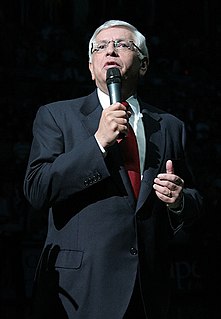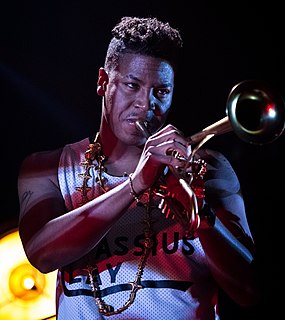A Quote by Kamasi Washington
A legacy is a lot of times determined by how people accept your music. And sometimes people's legacy starts late or starts early, or they last a long time or a short amount of time. As a musician, I've never taken an approach of wanting to try to control that because I don't think that I can.
Related Quotes
I guarantee you that Leonardo Prince is doing nothing but listening to the 'Tron: Legacy' soundtrack on loop. And he's probably seen 'Tron: Legacy' twice, or three times. And the other two times, he's taken people who he thinks are important to him, and judged by their reaction to see if he should still be friends with them or not.
In India, I personally believe yes, there is a clear fear of unknown; there's a lot of risk aversions in science and technology. They want predictability in everything they do, and it starts from people. It starts from investors. It starts from the regulators. You see that mindset across the society.
What we're doing now, is to try to eradicate the limited notion of how people are interacting with each other through hyper-racialized ideas. A lot of it deal with, as an example, genre. If I ask you to visualize a trap musician or a hip-hop musician, you'll see one thing. If I say visualize a western classical musician, you'll see a very different thing. A lot of how music is disseminated to us is hyper-racialized. It's not something that we think about all the time, but if you take a minute to look back, it's why you get this argument when there's a white rapper.
If we talk about changes of power in Russia, that has occurred several times in the past century. After Stalin came Khrushchev, who implemented his legacy quite radically, one could say. But there was no blood, nonetheless. After Brezhnev came Gorbachev. I'm not talking about the ones who were in power for only a short period of time. Gorbachev, too, left a very radical legacy.




































